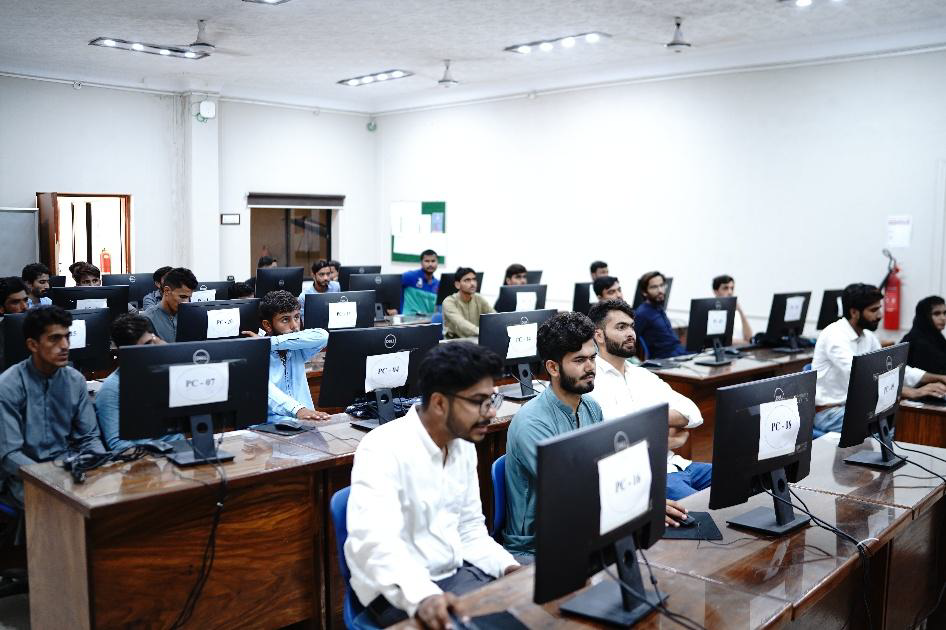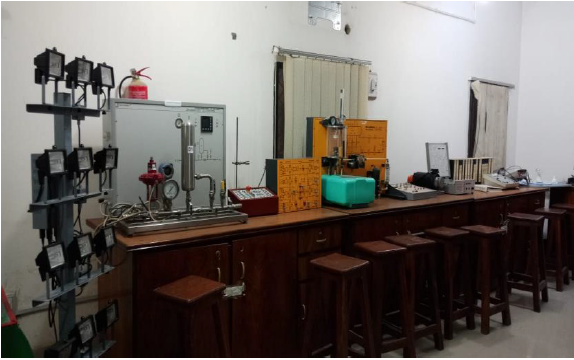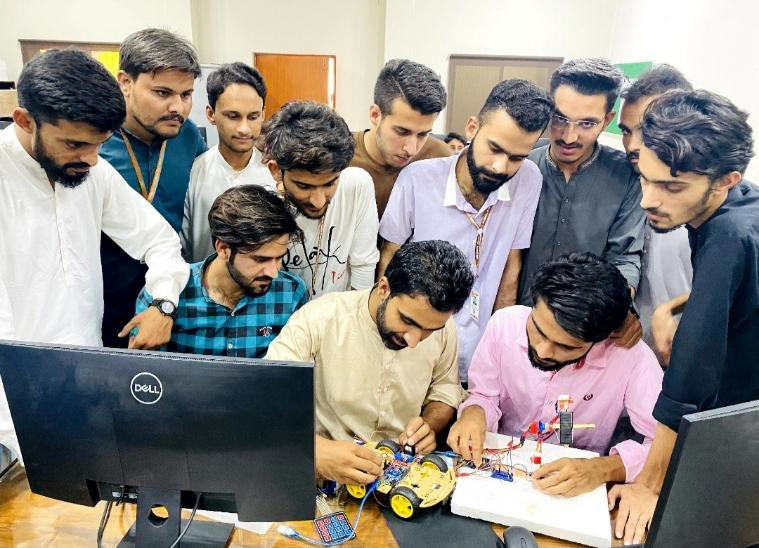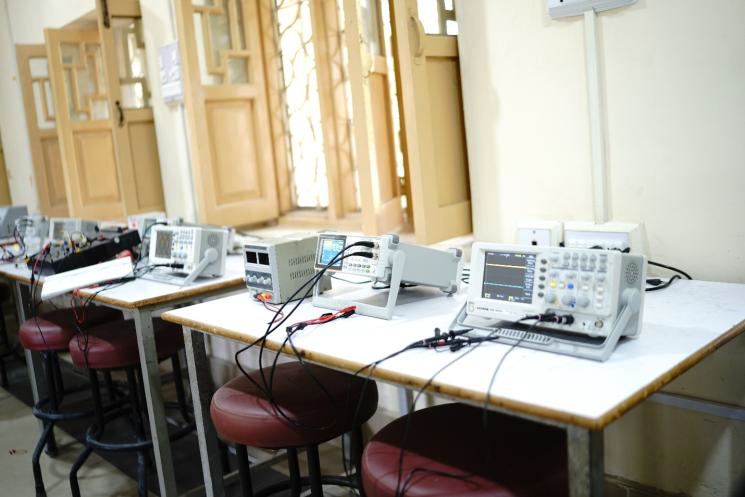
Welcome to the cutting-edge world of Robotics & Artificial Intelligence at our esteemed university. Our Bachelors of Engineering Technology in Robotics & Artificial Intelligence program is designed to empower students with a profound understanding of transforming intricate scenarios into decisive actions. In this program, we delve into the realms of knowledge, vision, language, and vast databases, providing students with the tools to enhance human capabilities through informed decision-making.
Our curriculum is meticulously crafted to cover a spectrum of disciplines, including computing, mathematics, automated reasoning, statistics, and computational modeling. Students engage with classical artificial intelligence languages, case studies, knowledge representation, artificial neural networks, machine learning, natural language processing, vision, and symbolic computation. Beyond technical expertise, we emphasize the importance of ethics and social responsibility, encouraging students to undertake long-term projects that apply artificial intelligence to address real-world challenges in agriculture, defense, healthcare, governance, transportation, e-commerce, finance, and education.
Embark on a journey where innovation meets impact and join us in exploring the limitless possibilities of Artificial Intelligence.
Our vision is to cultivate a community of AI professionals who lead the way in advancing technology for the betterment of society. We aspire to be a hub where creativity, innovation, and ethical considerations converge to shape the future of artificial intelligence. In envisioning a world transformed by AI, our program strives to produce graduates who are not only proficient in their technical expertise but are also passionate advocates for using AI to address pressing global challenges. Join us in shaping a future where artificial intelligence is a force for positive transformation.
Our mission is to nurture graduates who possess the analytical prowess to dissect, design, and develop effective AI solutions. Through a comprehensive curriculum and hands-on experiences, we aim to equip our students with the skills and knowledge necessary to contribute meaningfully to society. As future AI professionals, our graduates will not only navigate the complexities of this dynamic field but will also be catalysts for positive change.
|
PEO# |
Statement |
|
PEO 1 |
Technical Competence & Problem Solving |
|
PEO 2 |
Professional Practice & Ethical Responsibility |
|
PEO 3 |
Innovation, Entrepreneurship & Lifelong Learning |
|
PEO 4 |
Communication & Leadership in Multidisciplinary Teams |
Program outcomes are the statements that describe what students are expected to know and be able to do by the time of graduation. These relate to the knowledge, skills and attitude that the students acquire while progressing through the program. The program must demonstrate that the students have attained a certain set of knowledge, skills and behavioral traits, at least to some acceptable minimum level. Specifically, it is to be demonstrated that the students have acquired the following graduate attributes but not limited to:
The Department of Robotics & Artificial Intelligence provides comprehensive hands-on training through its specialized laboratory facilities. Students engage with practical applications that complement their theoretical studies, working directly with robotic systems, AI development platforms, and industrial automation equipment. The laboratory curriculum is carefully structured to reinforce classroom learning while developing technical competencies in key areas including robotic programming, machine learning implementation, embedded system design, and industrial control systems. Every circuit assembled, every algorithm debugged, and every robot calibrated reinforces our mission: to create not just graduates, but pioneers ready to redefine the future of automation and artificial intelligence. Through systematic laboratory exercises, students verify engineering principles while gaining proficiency with current industry technologies. The program emphasizes applied problem-solving, requiring students to design, test and optimize complete systems. This practical approach ensures graduates develop both the technical skills and analytical capabilities needed for professional work in automation, intelligent systems development, and related technical fields.
The Artificial Intelligence & Machine Learning Lab provides students with a dedicated environment for developing and testing intelligent systems through computational modeling and simulation. Equipped with high-performance computing resources and specialized software tools, the lab supports hands-on experimentation with machine learning algorithms, neural networks, and AI-driven simulations. Students work with real-world datasets to train and validate models, exploring applications in computer vision, natural language processing, predictive analytics, and autonomous systems. The lab’s simulation capabilities enable the study of complex scenarios, allowing learners to analyze system behavior, optimize parameters, and evaluate performance under controlled conditions.


Instrumentation and Control Lab provides hands-on experience in designing control algorithms and devices that can drive a wide range of mechanisms. Students can utilize a broad collection of state-of-the-art software and hardware tools (from NI, Mathworks, TI and Xilinx) available to build highly effective machines, sophisticated control systems, versatile rovers and innovative biomedical devices. Moreover, it has a wealth of resources to teach the students the fundamentals of Newtonian Mechanics, Engineering Design, Feedback Control, Industrial Control & Robotics.
The Robotics & Automation Lab provides students with a practical platform to design, program, and test robotic systems and automated solutions. Equipped with robotic arms, mobile robots, humanoids and series of controllers, sensors and actuators , the lab enables hands-on experimentation with real-world automation challenges. Students gain experience in robot kinematics, sensor integration, motion planning, and industrial automation through structured exercises and projects. The lab's infrastructure supports the development of complete robotic systems, from mechanical assembly to intelligent control algorithms.


The Electronics Devices & Circuits Lab provides comprehensive training in electronic circuit design, analysis, and testing. Equipped with digital storage oscilloscopes, DC power supplies, digital multimeters, function generators, LCR meters, and a complete inventory of components—including diodes, transistors, ICs, resistors, and capacitors—the lab enables students to build, measure, and troubleshoot analog and digital circuits.